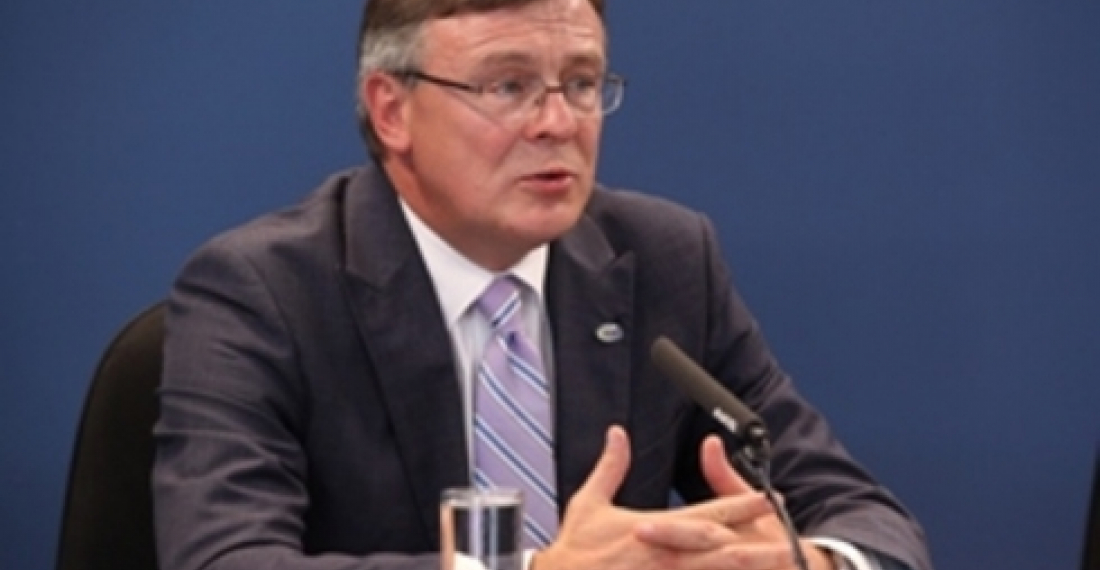Ukrainian Foreign Minister Leonid Kozhara finally arrived in Yerevan this week, concluding the usual obligatory pilgrimage that all the Chairmen-in-Office of the OSCE do, during their one year stint at the head of the organisation. Usually they manage to visit all the three countries in one go, but Kozhara had to travel from Kiev on three separate occasions to accommodate the busy schedules of the leaderships in the three South Caucasus countries - a sign of how times have changed perhaps.
In many ways Kozhara trip was uneventful, following all the usual routine and saying all the things that was expected. Ukrainian diplomacy is however somewhat irritated at being boxed in during its OSCE Chairmanship and Kozhara has been trying to use different formulas during his South Caucasus trips to introduce some new elements. For example, Kozhara in Yerevan used a formula that he had already stated in Baku some days earlier to describe support for the Minsk Process. Armenian media quote him as saying that "Ukraine supports actions of the OSCE Minsk Group, but believes that it could have more active engagement in the settlement process and could achieve more specific results." The choice of words reflects a broader impatience in the international community with lack of progress achieved by the Minsk Group in the settlement of the Nagorno-Karabakh conflict
"Not a single conflict was settled after a conference or session. Practical work is necessary," Kozhara told a press conference in Yerevan. At the same time, he stressed importance of the organization of meetings between representatives of civil society. Kozhara said Ukraine is ready to provide its territory for such a meeting. In addition, Ukraine supports all activities aimed at mitigating the consequences of humanitarian disasters. And any such conflict has consequences, Leonid Kozhara said.
In Yerevan Kozhara also met the President of the self declared Nagorno-Karabakh Republic, Bako Sahakyan. Sahakyan once more repeated the demand for the direct participation of the Nagorno-Karabakh Republic in the negotiation process.
This did not go unnoticed in Baku, where, the Foreign Ministry decided to give its own interpretation of the meeting, its spokesman Elman Abdullaev stating that:
"Leonid Kozhara held a meeting with the Azerbaijani community of Nagorno Karabakh when he was on a visit to Azerbaijan. As a continuation of the meeting, he held meetings with the Armenian community of Nagorno Karabakh in Yerevan", s He noted that the goal of these meetings with the communities is to establish inter-cultural dialogue: "Therefore, OSCE Chairman-in-Office has met with the representatives of Azerbaijani and Armenian communities of Nagorno Karabakh".
In Yerevan however, Armenian Foreign Minister Edward Nalbandian, dismissed earlier statements by Abdullaev regarding the discussions held in Vienna over the weekend between the Foreign Ministers of Armenia and Azerbaijan and the OSCE Minsk Group co-Chair.
"During the Vienna meeting, we continued discussing how to advance the peace process. We discussed the schedule of upcoming meetings, including possible organization of a high level meeting by the end of this year. The last one failed because of Azerbaijan. Now there is understanding and agreement that such meeting is necessary. We must work to hold this meeting by the end of 2013,"
Like all other OSCE Chairmanships, the Ukrainians are finding that the Office has little power and last for too short a time for the country holding it to make a difference. It remains however the only mechanism that can steer the organisation out of lethargy and Ukrainian diploacy needs at least to be given credit for trying.
source: commonspace.eu with various media outlets.
photo: Ukrainian Foreign Minister and cuirrtent OSCE Chairman Leonid Kozhara speaking in Yerevan on 15 July 2013.







